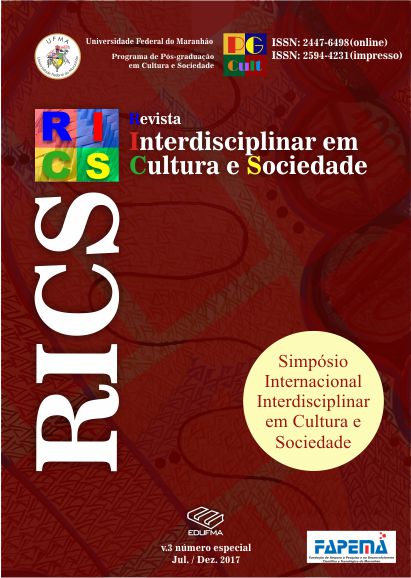MERLEAU-PONTY E AS DIFERENÇAS ENTRE PINTURA CLÁSSICA E PINTURA MODERNA: abertura das imagens pictóricas como recuperação do olhar
Resumen
A filosofia de Maurice Merleau-Ponty (1908-1961) realiza uma significativa crítica à tradição moderna da filosofia que pensou a “suficiente” evidência do mundo na relação determinante ao sujeito cognoscente. Em sua primeira parte de criação filosófica estabelece uma fenomenologia como o movimento a imprimir um radical diálogo com o Empirismo e o legado fisiológico do corpo, e com o Racionalismo, principalmente aquele ligado a Descartes, que defende a pintura numa circunscrição e ajuste ao mundo real. Para Merleau-Ponty existe uma recuperação do trabalho feito pelo pintor, aquele capaz de instaurar uma abertura perceptiva que capacita o sujeito também perceptivo para a adesão ao mundo. A pura representação das diversas manifestações do mundo não encontra a originalidade das coisas em seu estado nascente por meio de um ato constitutivo. A “abertura” significa nessas análises a intenção de recuperação do olhar. O olhar perceptivo não se determina pelo esquema de sobrevoo da razão ou pelas análises inconsistentes do sentir. As artes pictóricas proporcionam um estímulo a Merleau-Ponty a fim de apontar para o significado dominante de objetividade do mundo. A partir dessas observações basilares no pensamento merleau-pontyano suscitamos uma estética da representação ou a “forte” proximidade das coisas encontradas pelos pintores clássicos. Estética essa representada pela Pintura Clássica; e uma estética da expressão, cuja arte pictórica encontra nas coisas o modo selvagem e primitivo de nossa articulação com o mundo. Estética aqui representada pela Pintura Moderna.
Palavras-chave: Merleau-Ponty. Fenomenologia. Corpo. Olhar. Pintura Clássica. Pintura Moderna.
MERLEAU-PONTY AND THE DIFFERENCES BETWEEN CLASSIC PAINTING AND MODERN PAINTING: opening of pictorial images as recovery of the look
ABSTRACT: Maurice Merleau-Ponty’s philosophy (1908-1961) carries a significant critique of the modern tradition of philosophy which thought of “sufficient” evidence of the world in the determining relation to the knowing subject. In his first part of philosophical creation establishes a phenomenology like the movement to impress a radical dialogue with the Empiricism and the physiological legacy of the body, and with the Rationalism, mainly the one connected to Descartes, that defends the painting in a circumscription and adjustment to the real world. For Merleau-Ponty there is a recovery of the work done by the painter, the one capable of instituting a perceptive opening that enables the subject also perceptive to join the world. The pure representation of the various manifestations of the world does not find the originality of things in their nascent state by means of a constitutive act. “Openness” means in these analyzes the intention of retrieving the look. The perceptive gaze is not determined by the scheme of overflying reason or by the inconsistent analyzes of feeling. The pictorial arts provide a stimulus
to Merleau-Ponty in order to point to the dominant meaning of objectivity in the world. From these basal observations in the Merleau-Pontyan thought we elicit an aesthetic of representation or the “strong” closeness of the things encountered by the classical painters. Aesthetics represented by Classical Painting; And an aesthetic of expression, whose pictorial art finds in things the savage and primitive mode of our articulation with the world. Aesthetics here represented by Modern Painting.
Keywords: Merleau-Ponty. Phenomenology. Body. Look. Classical Painting. Modern Painting.
Descargas
Descargas
Publicado
Cómo citar
Número
Sección
Licencia

Este trabalho está licenciado com uma Licença Creative Commons Atribuição 4.0 Internacional. Os autores da Revista Interdisciplinar em Cultura e Sociedade mantêm os direitos autorais.


















